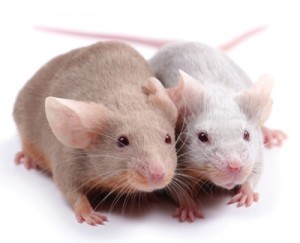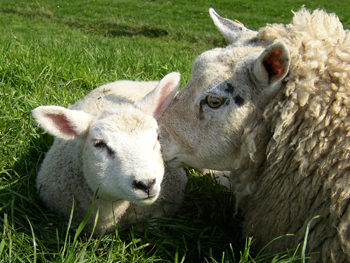
Don’t Leave a Legacy of Suffering
Many major medical research charities, such as Cancer Research UK (CRUK), the British Heart Foundation (BHF) and the Alzheimer’s Society, fund experiments on animals. Legacies are vital to such charities’ programmes of research – they make up more than a third of CRUK’s research funding and pay for almost half of the BHF’s research activity.
Some charities have incomes in the tens of millions of pounds a year. With a sizeable proportion of this coming from legacies, it is important that people leaving a legacy know that it may be used to support animal research.
Many people are in the dark
 76 per cent of respondents in a YouGov national opinion poll have said that they would be unlikely to knowingly leave money in their will to a charity that funds animal experiments. Yet organisations that do fund, or support, animal experiments receive millions of pounds from legacies. Animal Aid believes this is because people do not know which charities fund animal research. People may also see giving to charity as something that can only be good – a lasting legacy of benefit to future generations. After all, adverts for medical research charities typically feature test-tubes and passionate scientists, maybe even a patient or a bereaved relative – but they do not tend to feature the animals who are to be used in their research.
76 per cent of respondents in a YouGov national opinion poll have said that they would be unlikely to knowingly leave money in their will to a charity that funds animal experiments. Yet organisations that do fund, or support, animal experiments receive millions of pounds from legacies. Animal Aid believes this is because people do not know which charities fund animal research. People may also see giving to charity as something that can only be good – a lasting legacy of benefit to future generations. After all, adverts for medical research charities typically feature test-tubes and passionate scientists, maybe even a patient or a bereaved relative – but they do not tend to feature the animals who are to be used in their research.
Our Don’t Leave a Legacy of Suffering campaign aims to bridge this stark gap in public awareness, and encourage people to leave gifts only to charities that fund humane research.
How much money is left to charities who support animal experiments?
Cancer Research UK’s total income in 2017-18 was £634 million. Of this £182 million came from gifts that people had left in their wills. Legacy income, in CRUK’s own words, was their ‘single biggest source of fundraising income’.
The BHF’s total income in 2018-19 was £168.0m. Legacies accounted for just over half of this and totalled £84.9m.
The Alzheimer’s Society had a total income in 2018-9 of £112m. £27.5m of this came from legacies.
How are animals used?
 A macabre and truly repugnant experiment was financially supported by the British Heart Foundation (BHF) and performed at Cambridge University. It involved cutting open the bellies of sheep in late pregnancy and placing tubes and monitors into the legs and major blood vessels of their unborn lambs. Both were then deprived of oxygen via the repeated suffocation of the mothers, and were killed several days later.
A macabre and truly repugnant experiment was financially supported by the British Heart Foundation (BHF) and performed at Cambridge University. It involved cutting open the bellies of sheep in late pregnancy and placing tubes and monitors into the legs and major blood vessels of their unborn lambs. Both were then deprived of oxygen via the repeated suffocation of the mothers, and were killed several days later.
One CRUK-supported experiment used ‘nude mice’ – furless rodents who had been genetically modified to suffer from a weakened immune system. These mice were injected with human cancer cells, and made to endure the growth of a tumour inside them for three weeks before some of them were given treatments to reduce its severity. Another experiment used a different group of GM mice, who had been engineered to develop cancer when subjected to around six months of chemical poisoning. The chemical used had traditionally been used by the leather and motor fuel industries. A group of rats was subjected to the same disturbing poisoning regime.
If people don’t give, won’t research suffer?
If animal experiments were scientifically valid, our campaign could be accused of threatening a valuable source of funding for important research. But evidence points to animal experiments being a crude and outdated method that can produce dangerously misleading results. Non-animal techniques – such as the use of human cells and tissues, computer modelling, high-resolution scanning and clinical studies – are directly relevant to humans and much more likely to generate progress than animal-focused research. If charities change their policies accordingly, then this will be of huge benefit to people as well as to animals.
How do I find a humane charity?
Many people who are thinking of leaving a legacy to a medical research charity would be shocked to discover that their money might be used to pay for animal research. Yet it doesn’t have to be this way. Animal Aid has compiled a list of humane charities that do not rely on cruel and unreliable animal experimentation. The list is available on this website.
Not in my name
Please declare that you will not financially support research on animals
